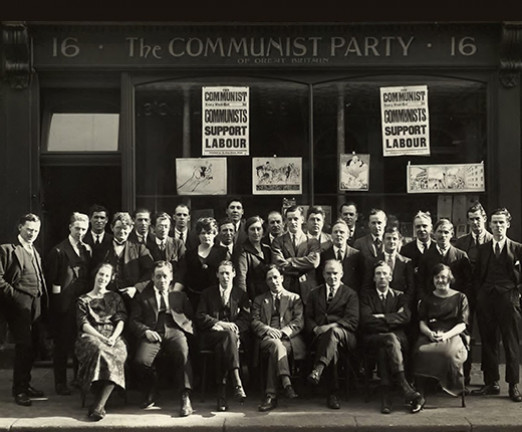
The Political Culture of British Communism, 1920–1991

National Congresses of the Communist Party of Great Britain
For the values, the rituals, the language, and the political culture of British communism, as well as insights into a wide spread of party activities, the congress materials provide an important source.University of Manchester
Access the full collection
Access the full archive of The Political Culture of British Communism, 1920–1991.
Institutional Free Trial
Start your free trialRegister for a free 30-day trial of The Political Culture of British Communism, 1920–1991, for your institution.
Institutional Sales
Visit Sales PagesellFor more information on institutional access, visit our sales page.
Already have a license? Sign in.

National Congress was the supreme decision-making body of the Communist Party of Great Britain (CPGB). Congress delegates from across the Party’s districts and branches met bi-annually in order to elect members to key political bodies, to vote on resolutions and on other policy issues, and to fraternise with fellow members and representatives of international communist parties. Congress was a hive of activity and often the scene of high political drama as tensions frayed and factions fought over the direction of the Party.
From the Communist Unity Convention in 1920, at which the CPGB was formed, to the Forty-Third National Congress in 1991, which saw the dissolution of the Party, this collection offers a detailed insight into the political culture and unique democratic processes of the CPGB.
The collection is accompanied by three contextual articles written by Professor Kevin Morgan.
Contents
The Political Culture of British Communism, 1920–1991...
National Congresses of the Communist Party of Great Britain
Discover
Highlights

Licensed to access The Second Unity Convention, 1921
This Convention represented an important step in terms of consolidating the work of the first Communist Unity Convention, at which the Communist Party of Great Britain was formed. Featured material includes official reports, resolutions, and memorandum on logistical issues.

Licensed to access Building a "United Front" at the Fourteenth National Congress, 1937
The Fourteenth Congress represented the apex of the CPGB’s attempts to build a "United Front" against fascism in Britain and to mobilise support for the ailing Spanish Republic. The CPGB's deep-seated, anti-fascist ethos is conspicuous throughout this period.

Licensed to access Press coverage of the Twenty-Fifth National Congress, 1957
The CPBG developed a rigid internal culture that largely stifled dissent. But newspaper reports on Congresses illuminate how the Party and its ideology was viewed (and often derided) by the political mainstream. In this featured document coverage centres upon the fallout of the Hungarian Revolution of 1956.

Licensed to access Factionalism at the Fortieth National Congress, 1987
Due to events in the Soviet Union and the ascendency of "Eurocommunists" to positions of leadership within the CPGB, by the late 1980s factionalism and infighting had intensified. This document contains material on disciplinary action from the Appeals Committee. It offers an insight into the fierce battles for control of the Party that were raging.
Insights
At the Communist Unity Convention in 1920 a number of left-wing groups came together to form the Communist Party of Great Britain (CPGB). Over the next five years the Party held several further Conventions in order to establish party rules, create a democratic structure, and to decide on the main tenets of its policy.
Although all Congresses are covered in detail, the collection hosts complete runs of Congress files from the Twentieth National Congress (1948) to the Twenty-Eighth National Congress (1963).
The General-Secretary usually opened Congress with a "Political Resolution" which situated the work of the CPGB within the domestic and international political landscape. It also set out the direction of travel for the Party. Members of the departing Executive Committee likewise reported on the work they had done since the previous Congress.
Resolutions sponsored by the Party’s key bodies had to be amended, painstakingly, by individual members. Special sub-committees, which are featured in this collection, were established to deal with this and to respond to other resolutions submitted to Congress.
For many onlookers Congress was often a source of fascination and entertainment. Indeed, established newspapers throughout Britain and further afield typically poked fun at this political event.
During the final years of the CPGB Congresses became fraught, testy affairs as "Eurocommunists" and "Tankies" vied for control of the Party. The Forty-Third National Congress (1991) saw the CPGB abandon its Marxist-Leninist roots and transform into the Democratic Left.
Unlock Historical Research for Your Institution
Provide your students and researchers with direct access to unique primary sources.
Related Media


Notable Individuals of the Communist Party of Great Britain Contextual Essays







